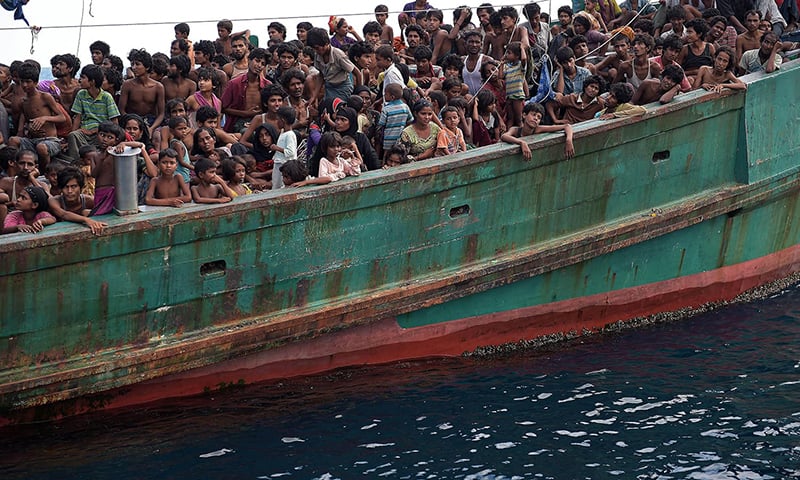THE tragedy that has been unfolding in the Andaman Sea has only been turned into a spectacle of even more distressing proportions given that it is occurring just out of sight of some of the world’s finest beach resorts: boats carrying thousands upon thousands of Rohingya Muslim migrants, mostly from Myanmar but also from Bangladesh, have been subjected to a deadly match between Malaysia, Indonesia and Thailand.
Floundering on the high seas and in many cases abandoned by their crew of human traffickers, these vessels carry people that are sick, hungry and urgently in need of rescue — but the three countries mentioned above, that are in a position to provide immediate succour, have been towing the boats out of their own territorial waters to effectively make them somebody else’s problem.
Take a look: Myanmar’s abandoned Rohingya — Asia’s pariah people
On board the boats, meanwhile, desperate conditions prevail, with deaths when vessels capsize, people thrown overboard in fights over dwindling food and water supplies, and sickness and starvation.
Thankfully, on Wednesday, Malaysia and Indonesia finally capitulated and offered shelter to 7,000 of these people; yet both countries made clear that the assistance was temporary and that they would take no more. Thailand remains flint-hearted, but it has said that it will not, at least, force boats back out to sea.
If this is a humanitarian catastrophe for which the behaviour of the three Southeast Asian neighbours has drawn censure, what can be said of the irresponsible stance taken by Myanmar?
It has denied any role in the crisis and did not join a meeting of regional foreign ministers on Wednesday where the deal to provide temporary shelter was struck.
Yet the reality is that the Rohingya community has for generations been persecuted here, denied recognition, land rights, and subjected to forced labour.
While these people feel they have no option but to flee by whatever dangerous means are available to them, the situation is a blot on the world’s conscience. Ways need to be found to convince Myanmar to recognise and address the problem.
Published in Dawn, May 22nd, 2015
On a mobile phone? Get the Dawn Mobile App: Apple Store | Google Play











































